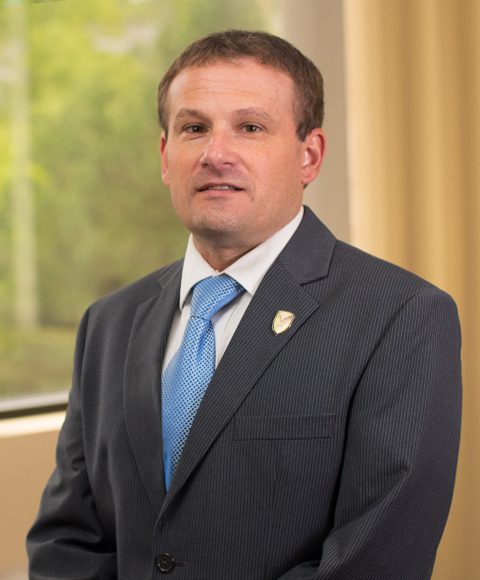The recent news that five West Point cadets, at least one a football player, overdosed on fentanyl-laced cocaine while on spring break in Fort Lauderdale garnered national attention, at least partly because it seemed so out of the ordinary. In general, the biggest scandals that have roiled the Orange County-based U.S. military academy have involved cheating.
Paramedics were dispatched to an Airbnb in Wilton Manors, Florida, on Thursday, March 10, following frantic 911 calls for help. Five of the six guests at the Airbnb were cadets. All six were taken to the hospital, and two were initially placed on ventilators.
The U.S. Military Academy confirmed on March 23 that all cadets had been released from the hospital, but offered no other information except that the incident remains under investigation. A 21-year-old man who allegedly supplied the tainted cocaine was arrested on March 12.
West Point has yet to announce disciplinary action, but the cadets already face harsh judgment in the public sphere given their acceptance to the nation’s top military academy. Each student who goes to the federally funded, tuition-free school is considered a member of the U.S. Army, and must serve a minimum of eight years upon graduation. The process to attend West Point is extremely competitive, requiring excellent academics and at least one personal recommendation from either a member of congress like a U.S. senator, or someone in the military. The academy stresses honor and character.
So how did West Point cadets end up in Florida behaving like typical hard-partying college kids on spring break?
Because they are like other college students — to a degree, argued Timothy Ringgold, a former senior U.S. Army officer and class of 1977 West Point graduate. “They work hard, they’re bright, they’re star athletes. They’re all that, but they’re still susceptible to the same peer influences as any other student at any other college,” he said. “They’re all adults, they’re in the Army, they should be more responsible. But we shouldn’t be surprised that they aren’t.”
In using a controlled substance as a West Point cadet, however, they are likely to get disenrolled, the term for expulsion in a military college. Greg T. Rinckey, a former Army Judge Advocate General (JAG) and founding attorney of the Albany law firm Tully Rinckey PLLC that specializes in military law, has represented several military students, including separate cases of West Point cadets who faced disenrollment for drug charges.
If it can be proven that the cadets knowingly ingested the drugs, he said, they would not only be disenrolled but could also be criminally charged for wrongful use, or possession of, a controlled substance and be required to pay back tuition. The total bill could amount to a whopping $150,000 to $200,000 per cadet — unless they are freshman, which is considered a kind of grace period to test young cadets’ dedication to service.
If the cadets are required to pay back the tuition money but fail to, the amount owed could be garnished from their tax refunds or bank accounts.
“Uncle Sam puts a lot of money into the education of these cadets, and if they’re not going to serve, the Army wants their money back,” said Rinckey, who said he believes the cadets will face a disenrollment process based upon facts known about the incident.
Cheating usually a cadet’s worst offense
Ringgold, who now teaches an ethics and leadership course at Ursine College in Pennsylvania, was himself involved in what was then the largest cheating scandal in West Point’s history in 1976, in which he acted as a whistleblower for 153 cadets whom he felt were unfairly penalized for collaborating on homework. His daughter recounted the episode in a book, “Choosing the Harder Right.”
Though Ringgold himself did not cheat, he still faced expulsion for speaking out. He was cleared to re-enroll following an investigation.
To this day, cheating and lying continue to be the main offenses cadets commit, said Augusto Giacoman, a class of 2004 West Point graduate, former Army Captain and now a partner at a consulting firm that is part of the Price Waterhouse Coopers network. This is mainly due to the strict cadet honor code, he said. “Cadets don’t lie, cheat or steal or tolerate those who do.”
Not only do those who break the code face disenrollment, said Giacoman, but “if I know my roommate lied about something and I don’t turn him in? I get kicked out.”
Both graduates said that there was very little drug use at West Point when they were cadets. In Ringgold’s day, the most illicit drug commonly used at school was marijuana. “There were some people, a lot of people, who smoked marijuana at the time, but it was all very quiet.”
Giacoman said that pattern of drug use hadn’t changed much when he was enrolled. Occasionally there were reports of pill use or cocaine, but it was not the norm — alcohol was. “I would say about 80 percent of us drank off duty.”
Rinckey agreed that hard drug use at West Point is very rare. “Do I think West Point has a drug problem? No. Of course there are drugs there, but is there a major issue? I don’t see it. Cadets are given urinalysis at random and quite often. So you never know when you’re going to get tested” — a disincentive to dabble in much more than alcohol.





